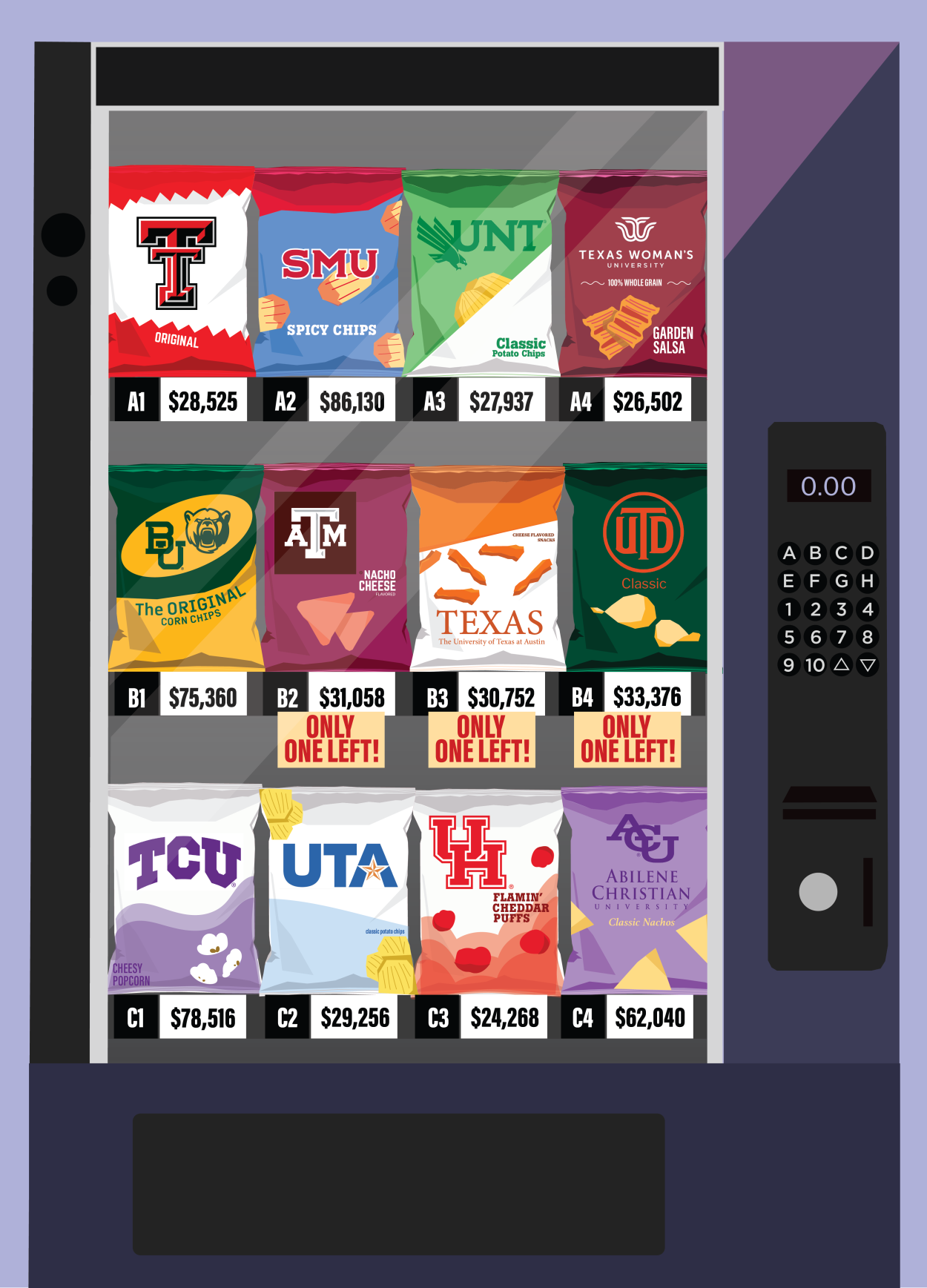
While eating breakfast, Coppell High School senior Hana Sawaf’s face is illuminated by her Macbook screen as she eyes her common application for the University of Texas at Austin, just before pressing submit.
Spending weeks of her summer tweaking and working to perfect it, this moment is monumental for Sawaf.
“I remember the day perfectly,” Sawaf said. “UT has been my top choice for a long time, and as soon as I pressed submit, the pressure was taken off.”
According to Coppell ISD, in a pool of 4,577 2019-2022 CHS graduates, 828 of those students are enrolled in the University of Texas at Dallas (UTD), 625 students at UT Austin (UT) and 488 students at Texas A&M University.
Making up about 43% of graduates, it is common for CHS students to go to one of these three colleges following graduation. However, this wasn’t always the case.
“When I first got here in 1985, students were looking at small colleges all around us like Howard Payne University and Abilene Christian University,” CHS Principal Laura Springer said. “And now it is ‘we have got to go to UT,’ and I’m like, ‘what is that?’”
In recent years, students have increasingly aimed for a smaller sample of Texas colleges and universities, while attendance to other schools have steadily declined.
“I’ve been teaching here for 26 years, been with seniors for 21 years and I’ve been seeing the increase,” English teacher Matthew Bowden said. “There are fewer and fewer kids choosing small schools on the east coast and west coast, and more and more are staying at Texas schools. Kids’ perceptions have always been sort of skewed and it’s kind of a case of institutional snobbery.”
According to Springer, the rise of popularity amongst UTD, UT and Texas A&M is due to the increased commercialization of these colleges throughout the years.
“When you’ve got colleges like UTD, UT, and Texas A&M, they have more marketing than some of the smaller universities, making their name well known amongst younger students,” Springer said.
UTD, UT and Texas A&M have established top-rated academic programs, creating a specific image attracting students.
“Each of these school’s programs has a specialized program which has high appeal to students at CHS,” Sawaf said. “UT’s low acceptance rate creates a sense of prestige, UTD has a great neuroscience program and A&M has created a good reputation with its programs, so that has been what is drawing kids at Coppell.”
Despite there being numerous options, students have the tendency to go for these larger state schools that are recognized, fearing they will lose credibility among their peers if they go to a less acclaimed university.
“I’ve never walked into a dentist’s office, looked at their wall and seen they had a degree from University of North Texas and been like, ‘I’m not going to this dentist’,” IB English IV Richard Orlopp said. “Depending on what you want to do with your life, you don’t need to go to some hugely expensive prestigious school in order to do it.”
It has come to a point where it is stigmatized for considering a college in Texas that isn’t in ‘the big three.’
“When I suggest UNT to a lot of people in this school, they either look insulted or ask ‘Why would I consider that?” Orlopp said.
When a select few don’t apply to these colleges, they are often asked why, even if the college does not cater toward their major.
“People expect you to apply to UT, because it’s technically the top ranked school in Texas,” CHS senior Anaya Dekhne said. “I’ve heard plenty of people ask me, ‘Why aren’t you applying to UT?’ There are so many unconsidered factors that go towards your decision.”
Students find solace in applying to these select colleges because they are comfortable choices, as many people they know apply and attend.
“People who ended up going to bigger schools, like UTD and UT Austin, still hang out with the same people they hung out with in high school,” said Baylor University sophomore Anika Dachiraju, a 2022 CHS graduate. “When you stick with the same people, there’s not any sort of change, and you can sense that familiarity. Personally, when I came to Baylor, I didn’t know anyone here, and I think that was great for me, because I wanted college to be very different from high school.”
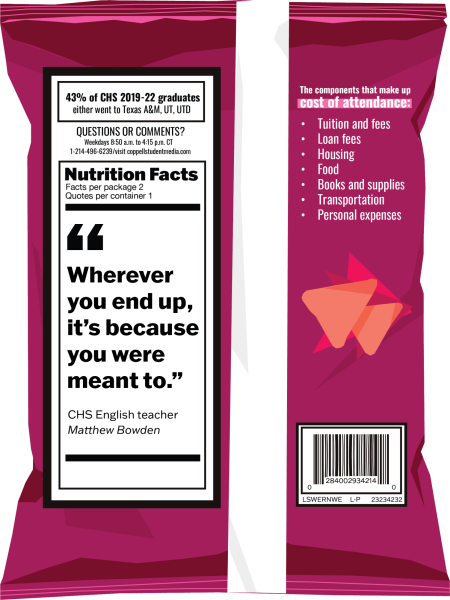
Students are often scared to move on from high school without their friends.
“You have got to have a lot of confidence to go away, and you’ve got to believe that you are strong enough to meet new people, start a new life and realize you had to do it at some point,” Springer said.
Students also adhere to the comfort of staying close to home. UT, UTD and Texas A&M are within four hours from Coppell, appealing to CHS students and parents who value proximity.
Students may take their parent’s input on which colleges to attend, and feel pressured to attend a brand-name college meeting their expectations.
“You’ve got so many talents you haven’t even hit yet that you’re going to get when you get out the doors and find a life,” Springer said. “That’s different from having your parents tell you what you should like and not like.”
When students prioritize the societal view of their choice of college, they receive a limited perspective, and in turn, limit their prospects in other state and out-of-state schools.
“The biggest mistake that students make in this process is that they hear about a college from their friend, and they think that they have to go to that school too,” Bowden said.
In response, students end up not researching and visiting campuses suitable for them.
“Some people say they are going to apply and they never visited the college, and don’t do their homework on it,” CHS lead counselor Ann Cinelli. “A lot of schools track demonstrated interest and if you don’t engage with them, talk to them and visit them, they’re going to run those data comparisons, they’re going to quickly weed you out, and you won’t get in. That’s a big mistake I see.”
Students may not consider how the learning and social environment of the campus will affect their time at the college and if it will allow them to thrive towards personal and professional growth.
“I know everyone likes to do their college visits, maybe just to miss class, but when they’re going there, are they thinking, ‘Do I want to be in a lecture hall with 300 students? Would I be better at a smaller school? Would I flourish in that?” Orlopp said. “They don’t consider all the opportunities.”
When applying to different colleges, senior Nehal Bharadwaj considered her preference of wanting to attend a school with a smaller class size.
“I always knew that I wanted to be in-state for college, and when I was looking into colleges, I was looking at how the programs were more than how popular it was,” Bharadwaj said. “Southwestern University has a very small graduating class and I personally like that, because I like to be in touch with my teachers and professors, and I feel like that is harder to do with bigger classes. I didn’t want to compete with 60,000 other students. I applied to schools like A&M and UT Austin as well, but it wasn’t the same. I felt like I was applying for the name more than the actual appeal.”
Students sometimes also tread over the fact that these popular state schools have higher tuition costs than other state schools, and may end up depending on the fact that their parents will support them.
“Just because your parents will pay for your college is the worst excuse ever for why you have to go to a college,” CHS business teacher Richard Chamberlain said. “That money is your parents’ hard-earned money that they work to have. You’re going to need your parents to have 40 grand a year, and they’re not going to have that money, because you spent it living in Austin at UT, because your friends are going to give you a hard time if you don’t. Go where you’re going to be successful and cost efficient.”
The top 6% automatic admission rule for UT and the top 10% automatic admission rule for public universities in Texas is also a determinant for CHS students’ college decisions. Many view UT, UTD and Texas A&M as fallback options, and rely on their position in the top percent for a college admission.
“With the top 6% rule, ever since ninth grade, I felt the need to achieve that spot, so I can have these colleges at the top of my list,” junior Erene Abraham said.
This need to be in the top percentile adds onto the trend of competitiveness at CHS and blinds students into thinking that grades are their gateway to success rather than building collaborative skills.
“The competitiveness has fueled a lot of stress and premature ulcers,” Bowden said. “It has fueled a culture of cheating to a certain degree because everybody has to keep up with everybody, and if this person got this GPA, they have to get it too. It’s like keeping up with the Joneses on a microcosmic level. I wish they would do away with the top 6%, top 10% and all. I wish colleges would just let kids get into schools based on their merits, complete package and snapshot of what the kid is, not just a GPA.”
This marathon of who can get into the best college with the best statistics serves as an additional stressor to an already strenuous college application process.
“I remember college application season being quite stressful,” Dachiraju said. “I was comparing myself to where others were at.”
As students attempt to emulate each other in choosing similar colleges, it creates an environment of strict conformity, leading to loss of individuality at CHS.
“This is your one life,” Bowden said. “You have to live it and you don’t want to do something, because someone else is doing it. Wherever you end up, it’s because you were meant to.”







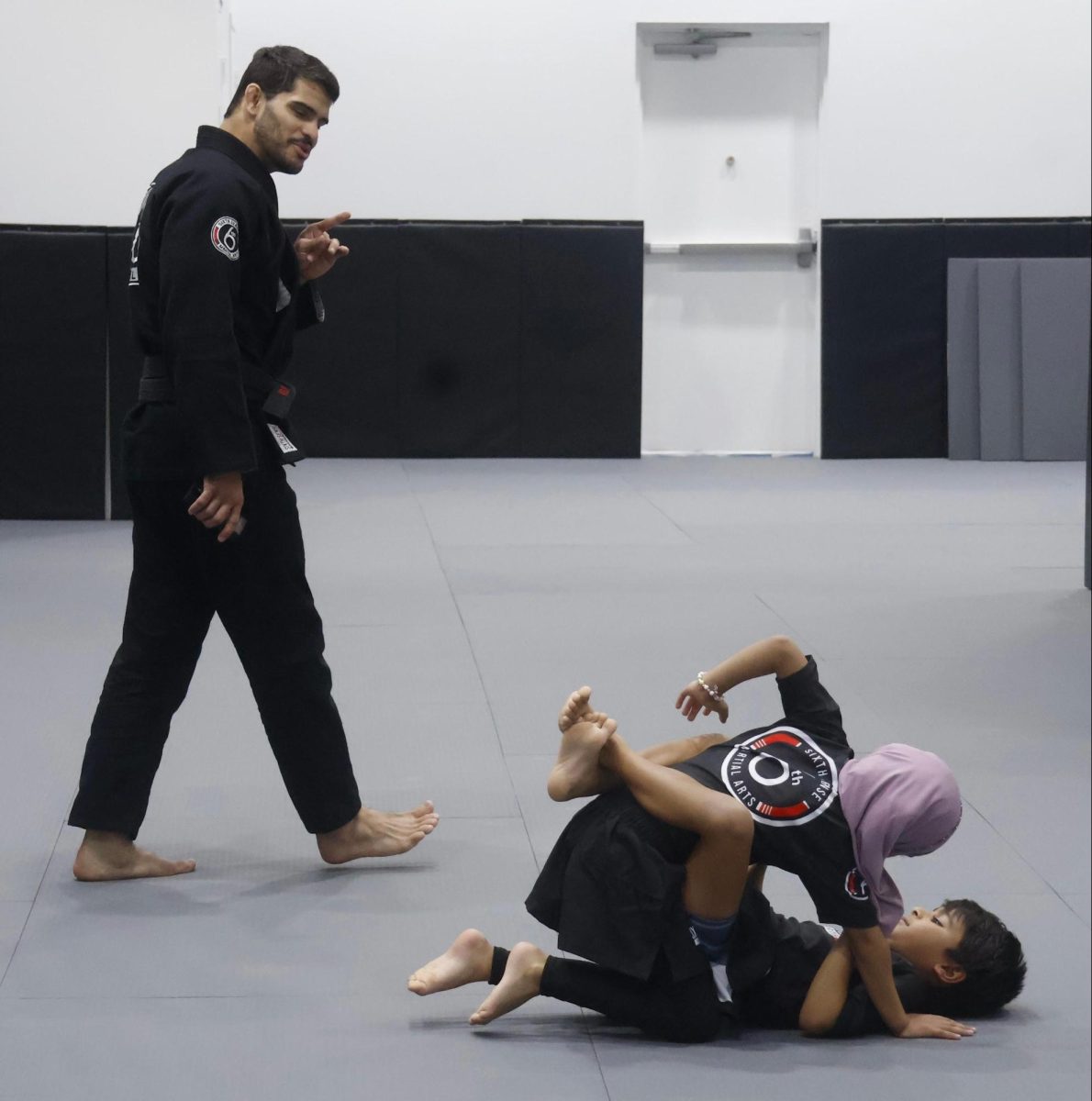

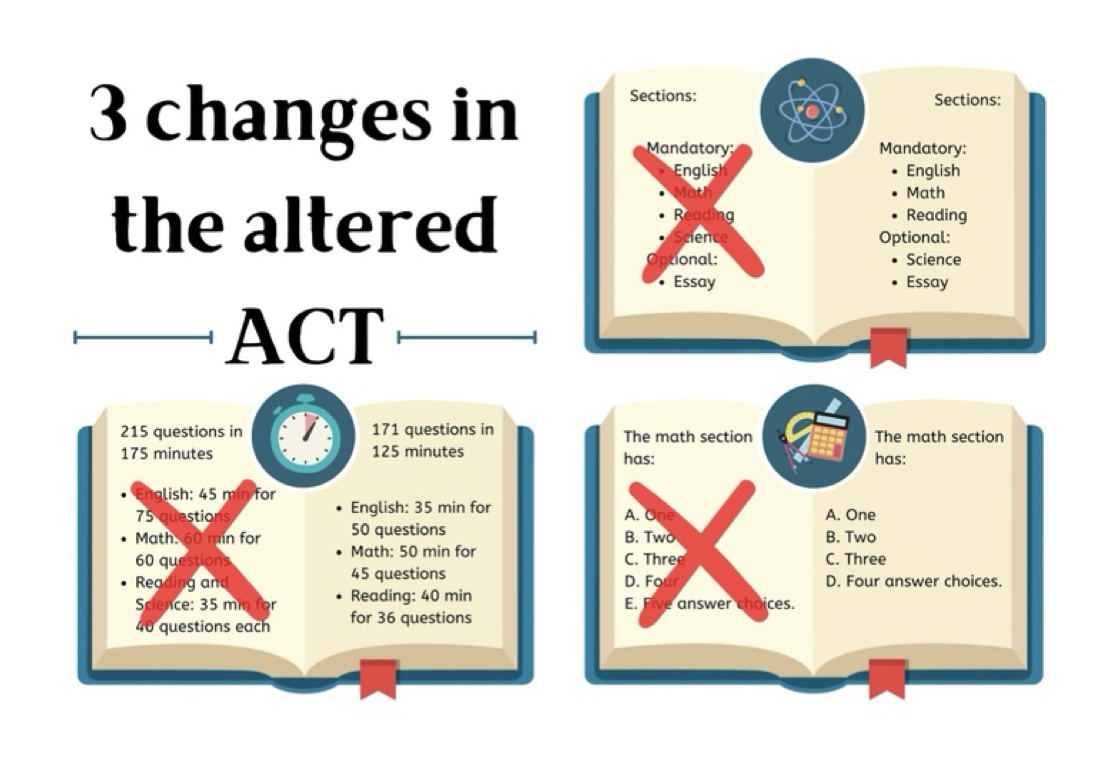

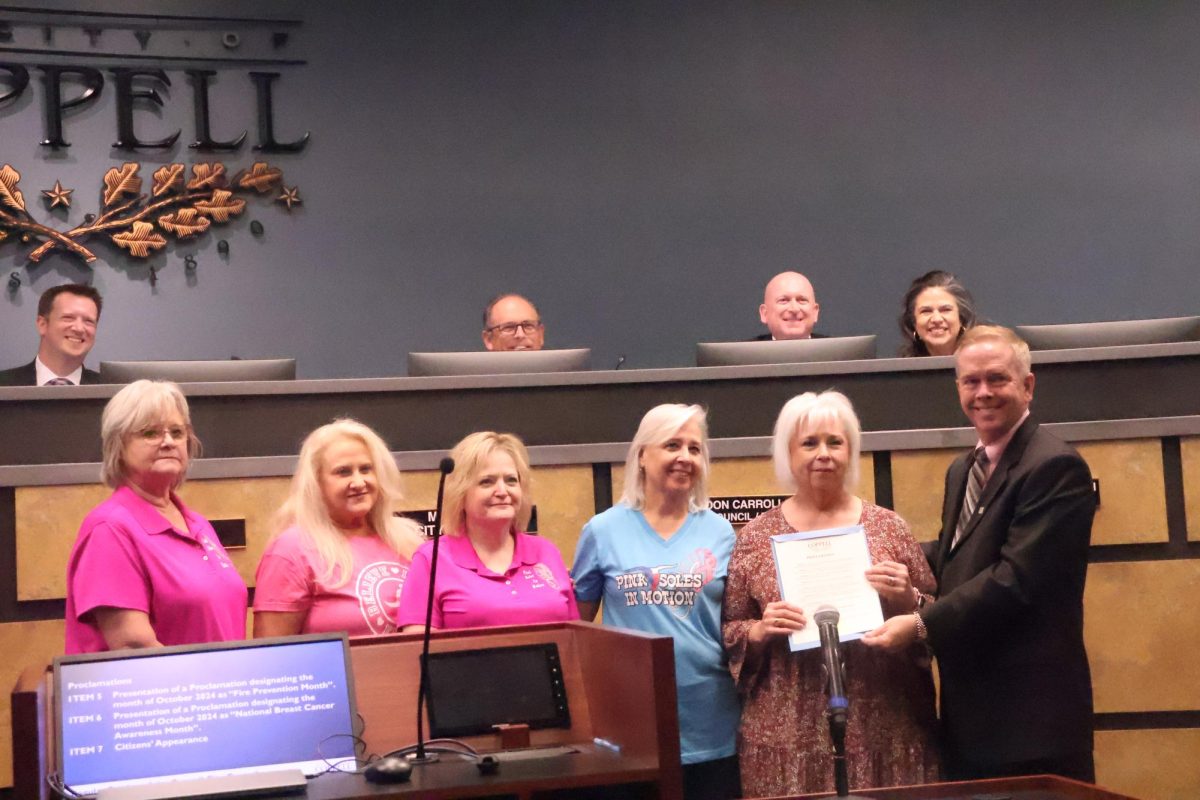
Sukirtha • Feb 13, 2024 at 9:35 am
This story is amazing!
Ashok C. • Feb 8, 2024 at 10:47 pm
Great Job guys!